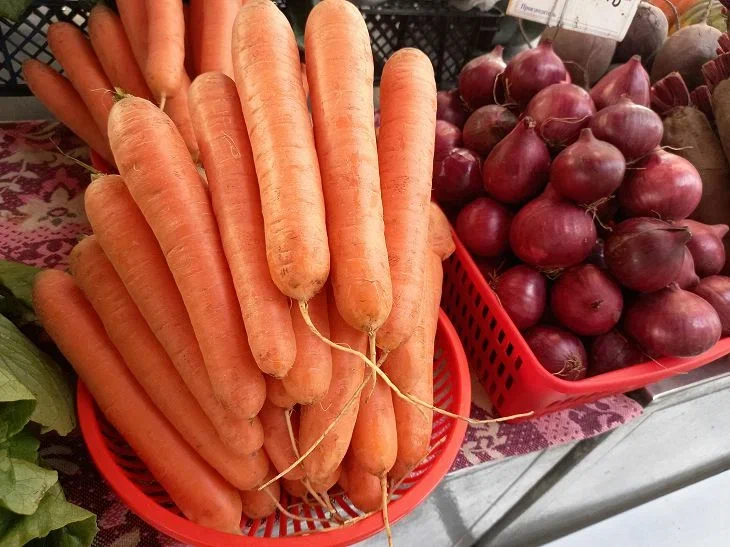What to eat to maintain good vision: Rospotrebnadzor experts answer
For a long time, it was believed that you can support your vision by eating blueberries.
But although the berry is good for health, it is not the only one that has a positive effect on visual acuity.
Rospotrebnadzor experts have told us which foods should be included in the diet to support vision.
Lutein
This pigment has a positive effect on visual acuity (including the ability to see in the twilight and darkness), blocking up to 40% of harmful ultraviolet radiation. It also strengthens the walls of the eye vessels.
Blueberries, spinach, broccoli and Brussels sprouts, black currants, tomatoes and carrots, pumpkin and zucchini are rich in lutein.

Moreover, heat treatment improves the absorption of lutein.
Zeaxanthin
This pigment is found in yellow fruits. Its properties are similar to lutein.
The diet should include corn, peas, pumpkin and melon, peaches, mango, saffron, paprika, which can be consumed fresh or processed.
Vitamin A and beta carotene
These substances are responsible for moisturizing the cornea and are part of the retinal pigment. Its deficiency reduces the ability to see in the dark.
There is a lot of vitamin A in the yolk of chicken eggs and butter. There is a lot of beta-carotene in carrots, as well as orange vegetables and fruits.
But vitamin A is better absorbed if you eat vegetables with vegetable oil or sour cream.
Vitamin E
Responsible for intraocular pressure, prevents changes in the retina.
It is found in abundance in sprouted wheat (1 tablespoon of sprouts is equal to the daily dose of vitamin E), nuts, avocados, spinach and unrefined vegetable oil.
Zinc
Zinc prevents aging of the lens and promotes the absorption of vitamins A and E.
It is found in abundance in sesame seeds, nuts, beef, peanuts, legumes and eggs.
Omega-3 and Omega-6
Prevents corneal dryness and prevents the development of cataracts.
They are found in abundance in fatty sea fish (salmon, herring and mackerel), flaxseed oil, seeds and nuts.
